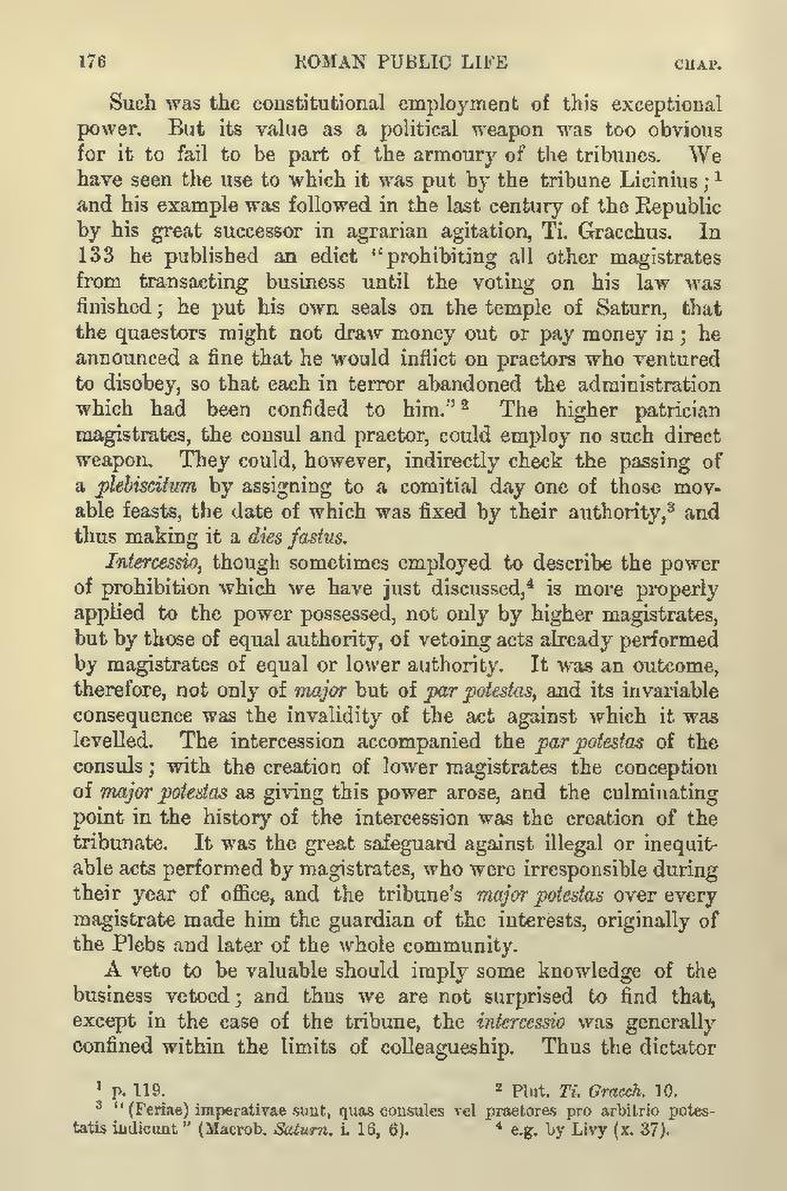Such was the constitutional employment of this exceptional power. But its value as a political weapon was too obvious for it to fail to be part of the armoury of the tribunes. We have seen the use to which it was put by the tribune Licinius;[1] and his example was followed in the last century of the Republic by his great successor in agrarian agitation, Ti. Gracchus. In 133 he published an edict "prohibiting all other magistrates from transacting business until the voting on his law was finished; he put his own seals on the temple of Saturn, that the quaestors might not draw money out or pay money in; he announced a fine that he would inflict on praetors who ventured to disobey, so that each in terror abandoned the administration which had been confided to him."[2] The higher patrician magistrates, the consul and praetor, could employ no such direct weapon. They could, however, indirectly check the passing of a plebiscitum by assigning to a comitial day one of those movable feasts, the date of which was fixed by their authority,[3] and thus making it a dies fastus.
Intercessio, though sometimes employed to describe the power of prohibition which we have just discussed,[4] is more properly applied to the power possessed, not only by higher magistrates, but by those of equal authority, of vetoing acts already performed by magistrates of equal or lower authority. It was an outcome, therefore, not only of major but of par potestas, and its invariable consequence was the invalidity of the act against which it was levelled. The intercession accompanied the par potestas of the consuls; with the creation of lower magistrates the conception of major potestas as giving this power arose, and the culminating point in the history of the intercession was the creation of the tribunate. It was the great safeguard against illegal or inequitable acts performed by magistrates, who were irresponsible during their year of office, and the tribune's major potestas over every magistrate made him the guardian of the interests, originally of the Plebs and later of the whole community.
A veto to be valuable should imply some knowledge of the business vetoed; and thus we are not surprised to find that, except in the case of the tribune, the intercessio was generally confined within the limits of colleagueship. Thus the dictator
